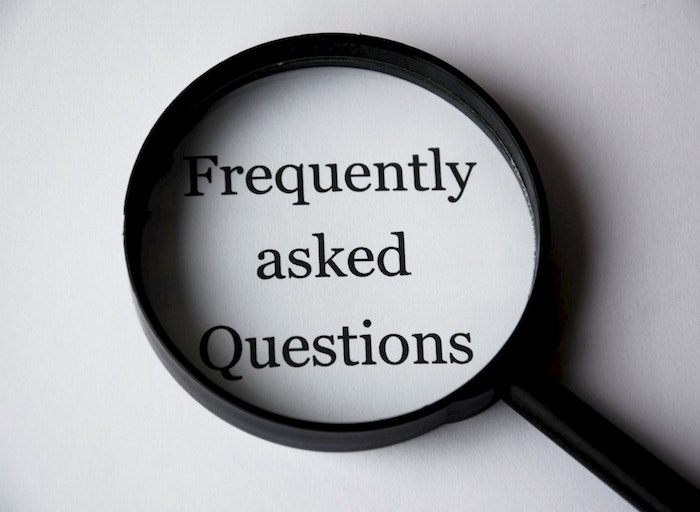Clarity, accuracy, and readability are of the utmost importance for business content. However, did you know that there is one simple trick you can use that will instantly improve your copy on all of those fronts? Humble writing synonyms are not just a concept we learn about in English class; they also have real and impactful implications for business writing.
Below, we’ll discuss the benefits of using synonyms and how to start incorporating them in your copy:
The Importance of Using Synonyms in Writing

The benefits of using synonyms in business writing go beyond just improving the artistry of your writing. Their use has tangible business benefits that impact your marketing, sales, and conversions.
The benefits of using synonyms in business writing include, but are not limited to:
- Enhances readability: A writer can avoid repetition and make a text more interesting to the reader. Using the same word repeatedly in subsequent sentences sounds monotonous and awkward. Replacing specific words with synonyms creates engaging content and gives it a better flow.
- Increases vocabulary: Although they have roughly the same meaning, synonyms can help illustrate the same idea differently. Discovering and writing using synonyms will help you think about the topic differently and improve your copy going forward.
- Improves tone and style: In the same way, synonyms can bring a different tone or style to the same idea. A writer can convey the intended tone and style more effectively and add more nuance to their writing by using the right synonyms in the correct context.
- Facilitates understanding: By introducing this type of nuance, writing synonyms will help readers understand your message, especially if they need to become more familiar with the original word.
- SEO Optimisation: Writing synonyms is useful if you plan to optimise your business content for SEO. Search engines also look for synonyms of keywords or keyphrases when evaluating the relevancy of web pages. It also helps to optimise your content for variations in search terms.
In summary, using synonyms in business writing will make any text more engaging, improve the writer’s vocabulary, and effectively convey the intended message. By introducing more nuance, synonyms can also be used to more directly market or speak to different target markets or consumers at various stages of the buying journey.
The Correct Use of Writing Synonyms

In order to use synonyms correctly, you should understand the theory behind them. There are three main types of synonyms we commonly use in writing today:
- Polysemy: This is when the same word has different meanings in different contexts. For example, “get” can mean “procure,” “become,” or “understand”, depending on how you use it. Each of these words may have its own written synonyms. So, “understand” has “know” or “realise” while “procure” can be “obtain” or “acquire.” You need to be careful in how you use polysemy so that you don’t confuse readers.
- Homonymy: Homophones sound the same but have different meanings and spellings (by/buy/bye). Homographs have the same sound and spelling but different meanings (minute – time, or small). These commonly lead to writing errors. However, they can also be a great source of catchy puns or marketing slogans.
- Contronymy: These are rare words with the same sound and spelling but opposite (or nearly opposite) meanings. For example, “sanction” can mean a penalty for breaking a law/rule or permission/approval for an action.
Examples of How to Use Synonyms in Business Writing

There are nearly endless ways you can use synonyms, whether for page copy, writing blogs, case studies, product/service pages, etc. However, here are some examples that might give you inspiration.
Let’s say you are writing page copy for an ISP (internet service provider). One paragraph talking about connection speeds may read like this:
“We are committed to providing fast internet across London. Our fast infrastructure powers everyone from families to multi-national organisations to use the web. If you want fast internet access, look no further.”
This needs to be more inspiring to read, and it feels like the writer ran out of words to use. By using synonyms, we can spruce up this dreary copy:
“We are committed to providing fast internet across London. Our high-speed infrastructure powers everyone from families to multi-national organisations to use the web. If you want turbo-powered internet access, look no further.”
As you can see, the text with synonyms is more engaging and exciting to read and has a better feel.
Tips for using synonyms in business writing

Hopefully, we’ve sold you on using synonyms in business writing. Effectively using synonyms takes some time to get used to and perfect, and it can seem overwhelming at first. However, we’ve got some useful tips on how you can quickly and easily start enriching your content with them:
- Keep it clear and simple by avoiding words your audience might not know.
- Consider your intended readers’ technical expertise and vocabulary, and use appropriate language.
- Context is king, and you should always consider it to help determine the correct word choice.
- Using too many synonyms can make your message and tone seem unfocused. Establish a shortlist of synonyms for keywords and stick to them.
- There are plenty of free online dictionaries and thesauruses you can use. Even Google will give you results if you search for “insert word + synonym.
- Always read your copy before you publish it to look for opportunities to use synonyms. Reading aloud is particularly useful for discovering awkward phrasing or flow.
Your Synonym FAQs
What are synonyms?
Synonyms are words that have the same or similar meanings but are spelt differently, like “profit” and “gain” or “yield.”
Are there different types of synonyms?
Yes, there are three main types of synonyms:
- Polysemy: The same word with different meanings (e.g., “bank” can be a place that stores money or a riverbank).
- Homonymy: Words with the same/different spelling that sound the same, with different meanings (e.g., “there,” “their,” “they’re”).
- Contronymy: The same word can have completely opposite meanings, depending on the context (e.g., “to rent” can mean to rent to someone or from someone).
When should you use synonyms?
Almost any piece of copy about a single idea or topic will require some use of synonyms. Use synonyms to describe or convey things more accurately and precisely. They can also be used to change the tone/style or improve readability.
How to find synonyms to use
Always proofread your content to find opportunities to use in writing synonyms. Some writing assistants can also help advise where you should use them. Google search, free online thesauruses/dictionaries, and even word processing software (like Microsoft Word) can recommend synonyms.
Final Thoughts
The utilisation of writing Synonyms can be a fantastic addition to your business copywriting toolkit. Not only will they improve the quality of your content, but they will provide a better user experience and allow you to tailor your content to be more effective in different situations. It’s relatively easy to learn to use synonyms for business writing by using a plethora of online tools or by seeking help from our pro writers at Premier Prose.
You can learn more about writing for business by reading our educational writing resources and blog posts. Or contact us today to discover how we can help elevate your content to the next level.




